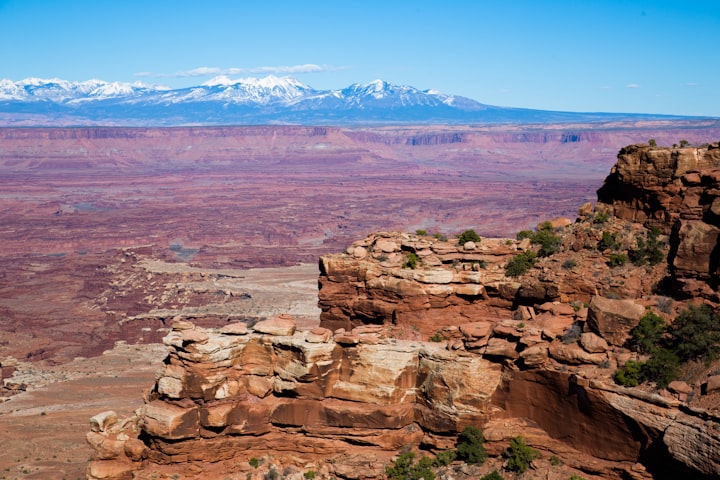Shifting of the Earth
Understanding Earth's Phenomenon and Its Consequences

The Earth's magnetic field is one of the most important components of our planet's system, and it plays a crucial role in protecting us from the harmful effects of solar radiation. The magnetic field, which is generated by the movement of molten iron in the Earth's core, is not static but rather undergoes constant changes. One of the most significant changes that can occur in the magnetic field is a shift in its orientation, and this phenomenon has been the subject of much scientific interest and research.
In recent years, there has been increasing evidence to suggest that the Earth's magnetic field is shifting, and some researchers believe that we could be on the cusp of a significant magnetic reversal. This is a process where the magnetic north and south poles switch places, causing widespread changes to the planet's magnetic field.
The Earth's magnetic field has been shifting for millions of years, and this is a natural phenomenon that occurs periodically. The most recent magnetic reversal occurred about 780,000 years ago, and since then, the magnetic field has been gradually weakening. This weakening has led some researchers to suggest that we are due for another reversal soon.
One of the most significant signs of the shifting magnetic field is the movement of the magnetic north pole. This is the point on the Earth's surface where the magnetic field points directly downwards. In recent years, the magnetic north pole has been moving at an unprecedented rate, moving toward Siberia at a speed of around 55 kilometers per year. This is a significant increase from its historical average of around 10 kilometers per year.
The reasons behind the shifting magnetic field are still not entirely clear, but researchers believe that it could be related to changes in the Earth's core. The movement of molten iron in the core is responsible for generating the magnetic field, and any changes in this process could cause the magnetic field to shift.
The shifting magnetic field could have significant consequences for life on Earth. The magnetic field plays a crucial role in protecting us from the harmful effects of solar radiation, and any changes to the field could leave us vulnerable to increased radiation exposure. This could have significant implications for the planet's climate, weather patterns, and ecosystems.
One potential consequence of the shifting magnetic field is the impact it could have on our technological infrastructure. The magnetic field plays a critical role in protecting our electronic devices from solar radiation, and any changes to the field could lead to increased interference and potential damage to our technology. This could be particularly problematic for satellites, which are essential for communication, navigation, and weather forecasting.
Another potential consequence of the shifting magnetic field is the impact it could have on animals that rely on the magnetic field for navigation. Many species of animals, including birds, fish, and sea turtles, use the Earth's magnetic field as a navigational tool during migration. If the magnetic field shifts too quickly or too dramatically, it could disrupt their ability to navigate, leading to significant consequences for these populations.
Despite the potential consequences of the shifting magnetic field, scientists believe that we are not in immediate danger. While the magnetic field has been weakening, it is still strong enough to provide adequate protection from solar radiation. Additionally, scientists believe that any potential magnetic reversal would happen gradually, taking hundreds or even thousands of years to complete.
In the meantime, scientists are continuing to study the shifting magnetic field to gain a better understanding of this phenomenon and its potential consequences. By studying the magnetic field, scientists hope to better understand the Earth's core and its relationship with the planet's surface. This research could also help us better predict and prepare for potential changes to the magnetic field in the future.
One of the ways that scientists are studying the shifting magnetic field is through the use of satellites. Satellites can measure changes in the magnetic field from space, providing a global view of the phenomenon. In recent years, researchers have launched a series of satellites, including the European Space Agency's Swarm mission, to study the Earth's magnetic field in more detail.
Scientists are also studying the history of the Earth's magnetic field to gain insights into how it has changed over time. By analyzing rocks and sediments, researchers can reconstruct the Earth's magnetic field from millions of years ago. This research can provide valuable information about how the magnetic field has changed in the past and what we can expect in the future.
Another area of research is exploring the potential consequences of a magnetic reversal. While scientists believe that a reversal would happen gradually over hundreds or even thousands of years, it could still have significant implications for life on Earth. For example, a weakening of the magnetic field during a reversal could lead to increased exposure to solar radiation, potentially causing health problems for humans and animals.
In conclusion, the shifting of the Earth's magnetic field is a complex and ongoing phenomenon that has been occurring for millions of years. While we do not fully understand the reasons behind the shift, it is clear that it has significant consequences for life on Earth. By studying the magnetic field, scientists hope to gain a better understanding of this phenomenon and its potential impacts. This research could help us better predict and prepare for future changes in the magnetic field and ensure that we are better equipped to deal with the consequences.
Thanks a lot for reading!
About the Creator
Derick Okwa
I am a fun and easing going guy who loves nature and the beautiful creatures inhabiting the earth with us. More reason I write articles about them.






Comments
There are no comments for this story
Be the first to respond and start the conversation.